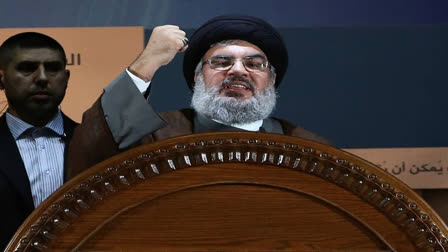New Delhi: Though the killing of Hezbollah secretary-general Hassan Nasrallah has been touted as a major victory for Israel during its ongoing conflict with Hamas in Gaza it has claimed around 42,000 Palestinian lives so far and is a big loss for Iran, the fact of the matter is that Tel Aviv will have to keep contending with non-state actors in the region in the times to come.
Following the killing of Nasrullah during an Israeli airstrike in Beirut on Saturday, the Iran-backed Lebanese Shia Islamist and political and militant group Hezbollah has announced that its deputy secretary-general Naim Qassem has taken over as the interim leader of the organisation.
Qassem vowed to continue fighting Israel and said the militant group was prepared for a long war after much of its top command was wiped out. Israeli strikes have killed Nasrallah and six of his top commanders in the last 10 days, and have hit what the military says are thousands of militant targets across large parts of Lebanon. Over 1,000 people have been killed in Lebanon, nearly a quarter of them women and children, according to the Health Ministry, and the government says the fighting may have displaced up to a million people.
Qassem said that despite the killing of Hezbollah’s top military commanders over the past months, the organisation now is relying on new commanders.
“Israel was not able to affect our (military) capabilities,” he said. “There are deputy commanders and there are replacements in case a commander is wounded in any post.”
This is the latest instance of how a non-state actor can keep challenging Israel in the West Asia conflict.
These non-state actors are distinct from traditional state actors because they often operate outside formal state structures, frequently challenging the boundaries of international law, and are driven by ideologies that do not align with diplomatic resolutions. Israel’s ongoing conflict with these groups can be understood through several lenses: historical grievances, the power vacuum created by weak states, proxy conflicts, ideological motivations and regional instability.
One of the reasons Israel faces non-state actors is the weakness or failure of neighbouring states to maintain control over their territories. Lebanon, for instance, has been a primary base for Hezbollah. The Lebanese government, weakened by sectarian divisions and decades of civil war, has been unable to fully disarm Hezbollah or assert its sovereignty over southern Lebanon, allowing Hezbollah to operate as a state within a state. Hezbollah’s control over significant parts of Lebanon, including its military operations and its foreign policy toward Israel, enables it to act independently of the Lebanese government.
